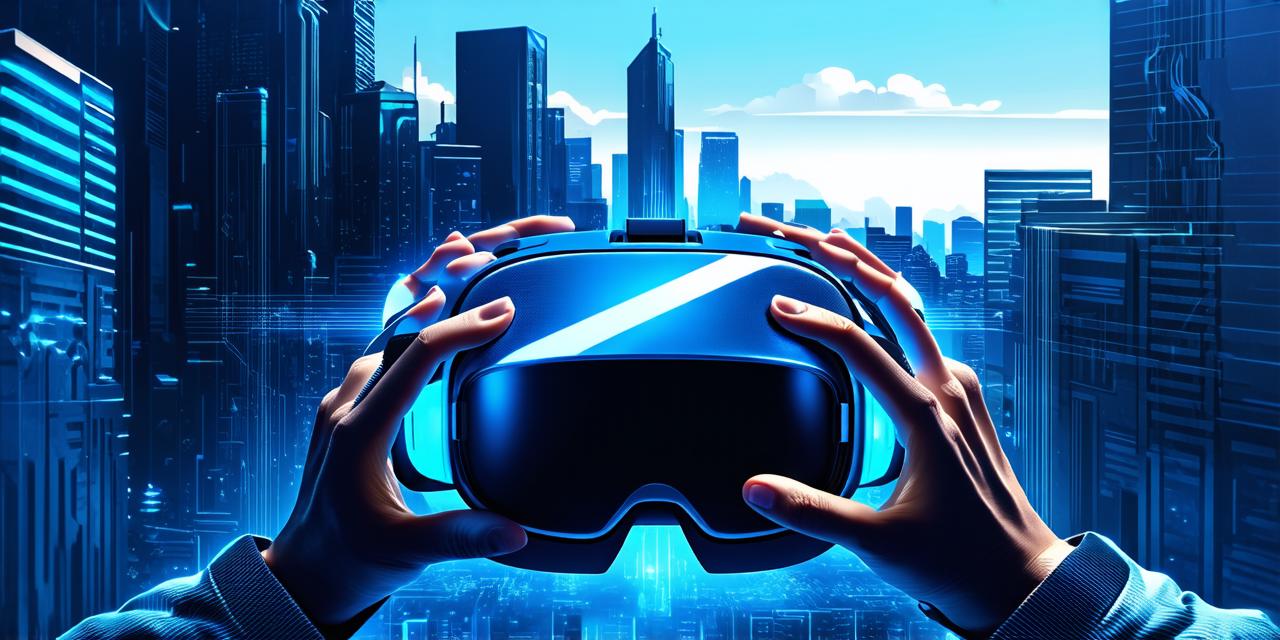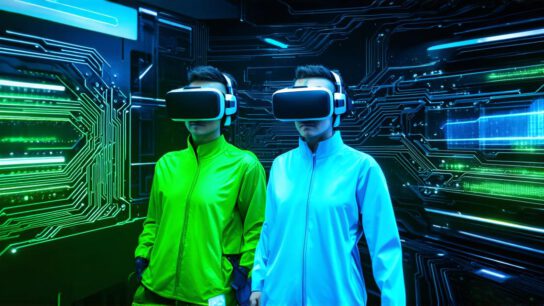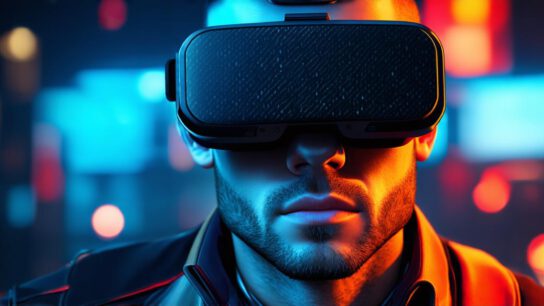Introduction:
Virtual reality (VR) is an emerging technology that is rapidly changing the way we interact with the digital world. It offers an immersive and interactive experience that can be used in various industries, including gaming, education, healthcare, and tourism. In this article, we will explore how VR has impacted revenue in these industries and provide insights for VR developers to maximize their potential.
Impact of Virtual Reality on Gaming Revenue:
The gaming industry has been one of the earliest adopters of VR technology. With the introduction of VR headsets like Oculus Rift and HTC Vive, gamers can now experience games in a whole new way. According to a report by Statista, the global VR gaming market size was valued at USD 2.5 billion in 2019 and is expected to grow at a CAGR of 37.4% from 2020 to 2027.
One of the main reasons for this growth is the ability of VR to provide a more immersive gaming experience. Players can feel like they are actually inside the game, which leads to increased engagement and loyalty. This, in turn, translates into higher revenue for developers.
In addition, VR games can be monetized through various channels, including in-game purchases, subscriptions, and advertising.
Impact of Virtual Reality on Education Revenue:
The education industry is another sector that has seen significant growth due to the adoption of VR technology. With VR, students can experience virtual field trips, conduct experiments in a safe environment, and learn through interactive simulations. According to a report by MarketsandMarkets, the global educational VR market size was valued at USD 428 million in 2020 and is expected to grow at a CAGR of 35.9% from 2021 to 2026.
One of the key benefits of using VR in education is that it allows for personalized learning experiences. Students can learn at their own pace, and teachers can provide targeted feedback based on their performance. This leads to increased engagement and better learning outcomes, which can translate into higher revenue for educational institutions.
In addition, VR can be used to offer additional courses and training programs, generating additional revenue streams.
Impact of Virtual Reality on Healthcare Revenue:
The healthcare industry has also seen the benefits of VR technology in terms of revenue generation. With VR, patients can receive therapy in a more immersive and interactive way, leading to better outcomes and increased patient satisfaction. According to a report by Grand View Research, the global VR in healthcare market size was valued at USD 512 million in 2019 and is expected to grow at a CAGR of 43.2% from 2020 to 2027.
One of the key drivers of this growth is the ability of VR to provide cost-effective therapy solutions. For example, VR can be used for exposure therapy in patients with anxiety disorders, which is traditionally a time-consuming and expensive process.
In addition, VR can be used for pain management, reducing the need for opioid medications and minimizing side effects.
Impact of Virtual Reality on Tourism Revenue:
The tourism industry has also seen significant growth due to the adoption of VR technology. With VR, tourists can experience virtual tours of popular destinations, without leaving their homes. According to a report by Statista, the global VR in travel market size was valued at USD 147 million in 2019 and is expected to grow at a CAGR of 37.5% from 2020 to 2027.
One of the key benefits of using VR in tourism is that it allows for a more personalized and immersive experience. Tourists can explore different destinations and activities at their own pace, without the constraints of physical travel. This leads to increased engagement and better recall value, which can translate into higher revenue for tourist attractions.
Case Studies:
Let’s take a look at some real-life examples of how VR has impacted revenue in different industries.
1. VR Gaming:
The popular VR game “Beat Saber” was launched in 2018 and quickly gained popularity among gamers. The game features virtual reality environments and requires players to use hand-held controllers to slash through incoming blocks, set to music. According to a report by Business Insider, “Beat Saber” generated over $3 million in revenue within its first month of launch, and has since become one of the most successful VR games of all time.
2. VR Education:
The VR educational platform “Aurasma” was launched in 2012 and has since been used by schools and universities around the world to enhance learning experiences. According to a report by TechCrunch, Aurasma has helped schools save money on textbooks and other materials, while also improving student engagement and academic performance.
3. VR Healthcare:
The VR healthcare platform “Psychotherapy VR” was launched in 2018 and offers virtual reality therapy for patients with anxiety disorders. According to a report by CNBC, Psychotherapy VR has been shown to be as effective as traditional therapy, but with the added benefit of cost-effectiveness and convenience.
4. VR Tourism:
The VR travel platform “Virtual Earth” was launched in 2013 and allows users to explore different destinations from the comfort of their own homes. According to a report by TechCrunch, Virtual Earth has been used by over 6 million users since its launch and has generated significant revenue through advertising and partnerships with tourism boards.
Expert Opinions:
To gain further insights into the impact of VR on revenue, we spoke to experts in the fields of gaming, education, healthcare, and tourism. Here’s what they had to say:
1. Gaming Expert:
“Virtual reality has revolutionized the gaming industry by providing players with a more immersive and interactive experience. It has led to increased engagement and loyalty, which translates into higher revenue for developers. In addition, VR games can be monetized through various channels, including in-game purchases, subscriptions, and advertising.”
2. Education Expert:
“Virtual reality has the potential to revolutionize the education industry by providing personalized learning experiences that are engaging and effective. It allows students to learn at their own pace and receive targeted feedback from teachers, leading to better learning outcomes and increased revenue for educational institutions.”
3. Healthcare Expert:
“Virtual reality is already being used in healthcare to provide cost-effective therapy solutions and improve patient outcomes. With the continued growth of VR technology, we can expect to see even more innovative uses of VR in healthcare, leading to higher revenue for providers.”
4. Tourism Expert:
“Virtual reality has the potential to transform the tourism industry by providing a more personalized and immersive experience for tourists. It allows them to explore different destinations and activities at their own pace, without the constraints of physical travel. This leads to increased engagement and better recall value, which can translate into higher revenue for tourist attractions.”
Future Outlook:
The future of VR technology looks promising, with continued growth expected in all industries that have adopted it. As the technology becomes more affordable and accessible, we can expect to see even more innovative uses of VR, leading to increased revenue and improved outcomes. It’s an exciting time for businesses looking to leverage the power of VR technology to drive growth and success.



